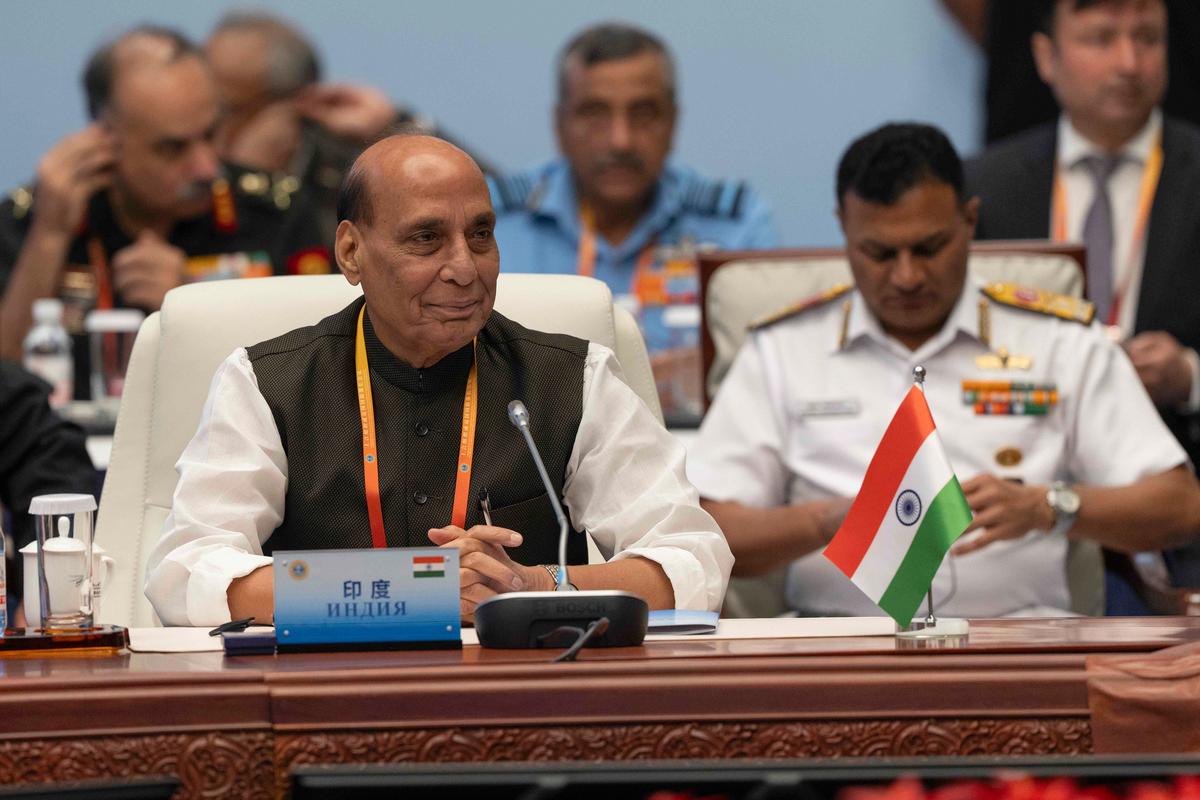India’s Defense Minister Rajnath Singh declined to endorse the Shanghai Cooperation Organization (SCO) joint statement during a meeting in Beijing, protesting the omission of any mention of the Poonch terrorist attack. The high-level defense ministers’ gathering, aimed at fostering regional security cooperation, instead exposed deepening rifts between member nations.
According to Indian media reports, Singh refused to sign the final declaration after it failed to address the Poonch incident, which India considers a critical security concern. The minister’s rejection came as a strong statement against what New Delhi perceives as a lack of acknowledgment of cross-border terrorism.
The SCO communiqué reportedly included indirect accusations against India, suggesting its involvement in destabilizing Balochistan. This allegation further strained relations, with Indian officials dismissing the claims as baseless. The document’s language reflects the geopolitical tensions between India and other SCO members, particularly China and Pakistan.
The dispute raises questions about the SCO’s ability to maintain unity amid conflicting national interests. As India takes a firm stance on terrorism, the organization’s future as a platform for consensus-building appears increasingly uncertain. Will member states find common ground, or will such disagreements hinder collective security efforts?














